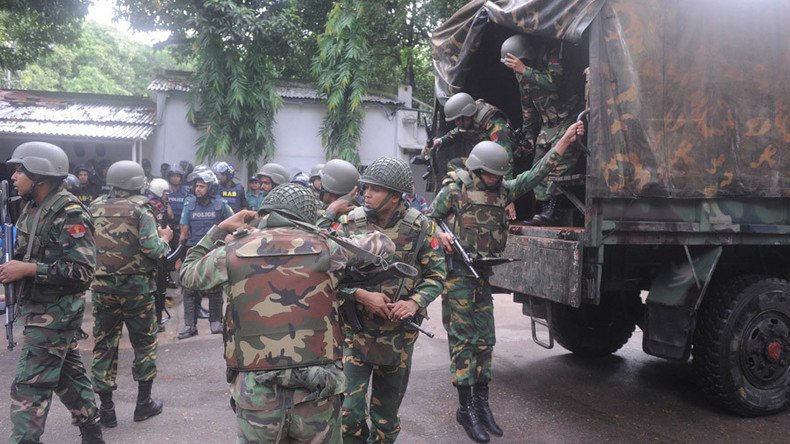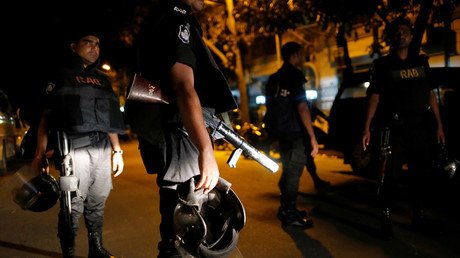‘Bangladeshi government contributes to rise in extremism’

Despite decisive statements from the Bangladeshi government, its high-handedness is actually contributing to a rise of extremism there, says journalist Ahmed Quraishi, a researcher on terrorism in South Asia.
Twenty civilians were killed in an attack on a restaurant in Dhaka’s diplomatic quarter on Friday, according to the Bangladeshi army. The victims were mainly foreigners. Islamic State (IS, formerly ISIS/ISIL) has claimed responsibility for the attack.
Bangladesh and its Western partners are concerned about a surge in terrorism in the country and have boosted measures to fight it. Last month, the US and Bangladesh signed a counter-terrorism agreement.
RT: Are we seeing a surge in terrorism in Bangladesh now? Why do you think that is?
Ahmed Quraishi: There is little question that ever since prime-minister Sheikh Hasina Wazed came to power in 2009, we are seeing here in this region a dramatic rise in extremism and attacks on minorities in Bangladesh. This is very clear. And the most interesting part of this phenomenon is the reaction of the government itself, how effective the reaction of the PM Hasina Wazed government has been to these rising extremism. And I think this scorecard is really not very encouraging. We’ve seen the government, on the one hand, being very decisive against these groups in terms of the statements coming from government ministers and the actions on the ground. But at the same time, we have not seen those actions really translate into a reduction in these attacks. On the contrary, we are seeing a rise. So, there is a question that a lot of people are asking right now, and that is whether some of the actions, some of the high-handedness by the government of PM Hasina Wazed is actually contributing to the rise of extremism. And I am specifically referring to the executions of some of the political opponents of the PM. Those trials were about the cases dated back to 1971, the independence of Bangladesh. But the very fact that those trials were conducted now, and the manner in which they were conducted, and the fact that most of the people who were executed belong to the religious groups – I think this is one key factor in this rising trend of extremism in Bangladesh under the reign of PM Hasina Wazed since 2009.
RT: The US is concerned about the situation in Bangladesh. Why?
AQ: There is little question what we are seeing overall in this region. The Americans are basically concerned about the overall stability in South Asia mainly because of Afghanistan. And of course, the US has a growing relationship right now with India. In Bangladesh, the US is specifically concerned about rising Chinese influence…The US is very much interested in Bangladesh because of its strategic location, because of the fact that China is showing tremendous interest in Bangladesh. We are hearing reports that the Chinese government is negotiating with the Bangladeshi government on a project that would see the establishment of some kind of sea port in Bangladesh that would facilitate trade between Bangladesh and China. So, the US is quite interested in Bangladesh, there is no question about it.
Sultan M. Hali, senior retired officer of the Pakistani Air Force believes that such an attack was expected and links it to the recent execution of a number of officials from an Islamist political party Jamaat-e-Islami. “It was expected that there is going to be a backlash,” he told RT.
RT: What do you think the US could do to help Bangladesh and its government fight terrorism?
AQ: The US definitely can help the Bangladesh government in capacity building, Bangladesh needs that. But I must remind you that Bangladesh itself has a very disciplined army. It is one of the largest contributors to peace-keeping forces in Africa and in other regions of the world. Bangladesh is quite capable of handling the problem by itself as well.
The statements, views and opinions expressed in this column are solely those of the author and do not necessarily represent those of RT.













